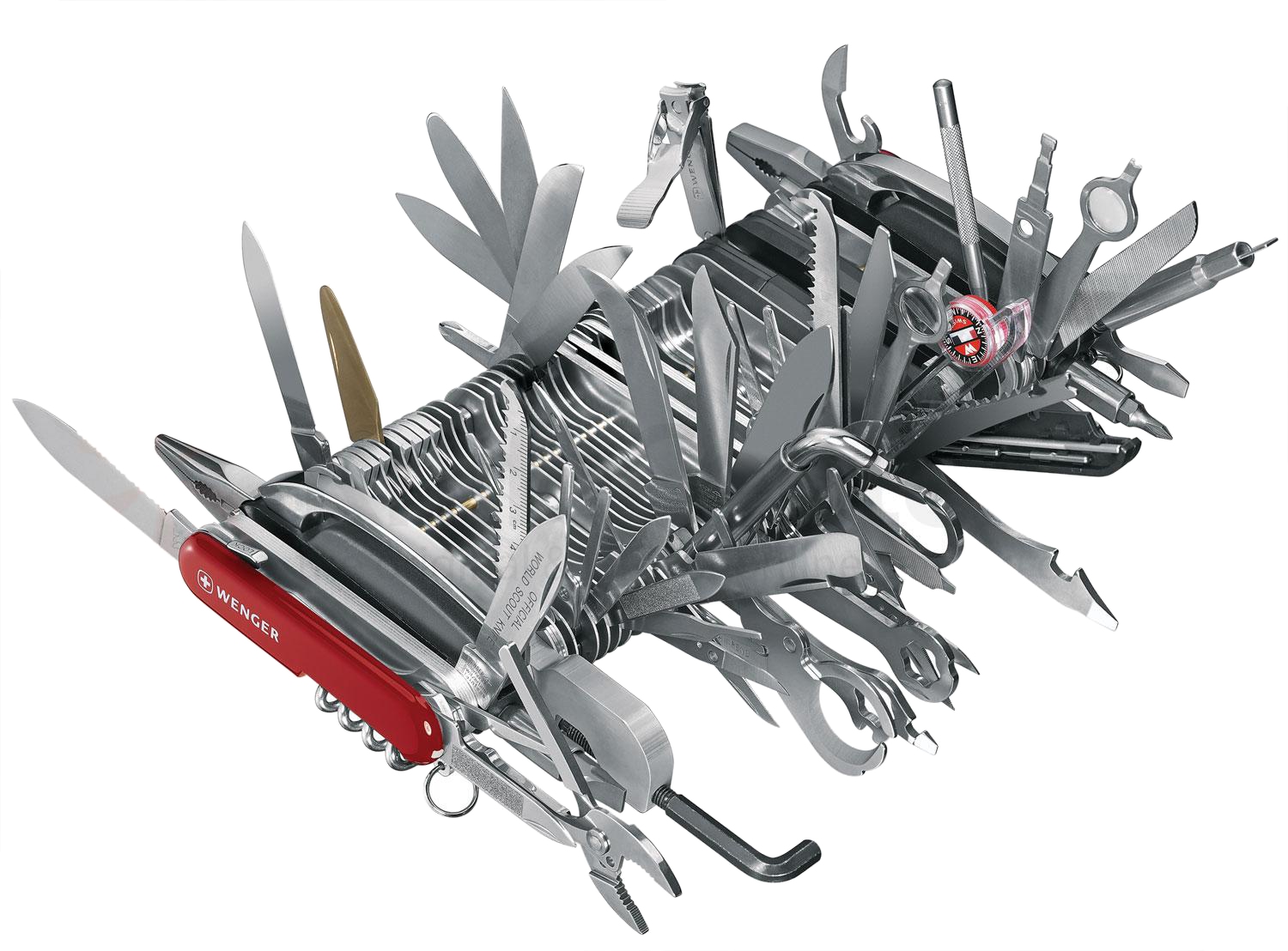Tool, assistant, or… what?
Hey, did you know that your smartphone is a computer that’s more than ten times faster than the late 70’s 9-million-dollar Cray-1 supercomputer? We’re carrying around sci-fi levels of computing power in our pockets – literally; less than a generation ago, writers thought computers of this power level would be smarter than humans.
Now, apart from this being awesome – especially if you’re a bit of a geek like me – this means that the conversation we can have, about what to use all this immense power for, can really start to get interesting.
I’d like to take a few hundred words to address some issues of it, from the point of view of the human side, before our robotic overlords decide we’re obsolete and render us for coolant or whatever…
Perhaps you’ve heard that the pressing buzz-phrase in tech is “mobile first” – apparently companies have to remind themselves that their users now use smartphones for a lot of erstwhile “sitting at a computer with a keyboard and screen” tasks, which is kinda weird because everyone working at those companies do that themselves. What’s a bit weirder, though, is how this seems to be mostly interpreted to mean that your user interface has to be responsive and designed for touch, forgetting that yeah, millions of users will be using your stuff via mobile, but other millions will also still be using it via a regular-type computer, so, you know, let’s remember not to crap on their user experience in the process, right?
More importantly, though, the fact that, as alluded to in the intro, there’s a lot more to “mobile” than “small screen and no keyboard” means that a whole new set of questions can now be addressed – one of the most interesting ones being “what kind of thing is a computer?” – or, you know, something to that effect. Meaning, is the computer a tool? Is it a multifunctional appliance? Or an assistant?

Peering into the realm of possible answers to these questions means things get super-interesting in a hurry – like for example, if it’s a tool, what then? Well, a tool is something that you pick up for a specific task that it was designed for, usually an incremental one (as in, a screwdriver only ‘cares’ about screwing screws, it doesn’t matter to it what kind of machine the screws are a part of, what part of the building process you’re in etc.) – you can have multitools but usually limited to a range; rarely do you find tools for sewing and fixing cars in the same piece of equipment.
This interpretation is interesting vis-a-vis the current trend of wearables; if it’s a tool, and thus task specific, how does wearability fit in? Or, if it’s meant to be worn all the time, is “tool” the right way to look at it?
Similarly, the notion of a multifunctional appliance raises new questions – like, how many other truly multifunctional things have actually become successful? Multifunctionality has been a thing as long as design has – and yet, the only majorly successful transforming piece of furniture is the couch that folds out into a bed. Meanwhile, the multifunctional kitchen appliances that have been successful are more like tools – think “hand mixer with three different whisks”. The ones that truly try to reach wider see limited use; sure, it’s clever with an onion-chopping add-on for your stick blender but it’s still much easier to use (and especially to clean) a knife. Seems there’s more to multifunctionality than simply having multiple functions.
And then there’s the assistant bit – that one is promising but is also presenting us with some rather interesting challenges. For example, that the tasks in our daily lives that, to us, seem simple, and mostly only vulnerable to forgetfulness – keeping track of appointments, grocery shopping and so on – become horribly susceptible to disruption when a computer has to help with them; suddenly time zones, battery life, programming logic, communication protocols and a host of other high-level stuff can affect whether we have an updated list of ingredients for that bouillabaise when we need it, and getting your digital little helper to switch off the lights if you forget before leaving for work requires you to learn what ITTT-statements are, and to take a whole sunday out with the family to work through setting it up. And then updating it everytime someone’s habits change, or if you replace a phone or tablet – or as the seasons turn.
Suddenly it seems like maybe just getting a pencil and writing a grocery list, or a note saying “REMEMBER SWITCH OFF BATHROOM LT” to stick on the wall next to the front door, might be easier afterall.
And then there’s the issue of who this assistant works for. As a thought example, let’s compare with actually hiring a personal assistent, you know, a human one – how would you feel about it if you found out that someone else was paying your PA to nudge you towards their business? Like, a chain of restaurants that made him take care to remind you of your coffee thirst, or lunch time, just as you pass one of their branches, for example – would that be OK?
“Sure”, you might say, “- as long as I get a discount” – but others might fire that dude on the spot; you were paying him to work for you, not to try to get to your wallet on behalf of someone else. And that’s a very significant issue with our digital assistants – even now, your use of the Google search engine can enclose you in a filter bubble; it’s helping you find your way around the web, but there are other parties involved besides you. Siri only works with Apple-approved vendors, and Cortana is dependent on who Microsoft can agree with, and so on. It’s a potential conflict of interests that has to be part of the conversation.
You’ll note that I don’t propose to have answers to these questions – that’s because specific answers should be found for specific applications, in their real context. It’s always important to be asking them, though – examining their premises, considering their merits, looking at many possible answers and their consequences.
That’s it for now – have at me, robot overlords.

“- aren’t you just dying for some delicious McDonald’s, sir…?”




